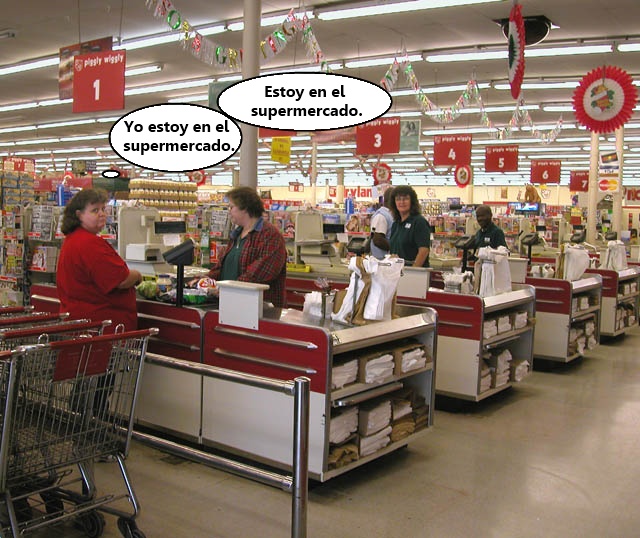28
Oct
2011
2- Verbo “estar”
//
Comments0
Verb “estar”
Meaning: to be – used when we are talking about where you are / someone is / something is: it is used with adverbs of place.
Estar is an irregular verb which means it doesn’t follow a pattern when conjugated; it has its own pattern. This is the cojugation for “estar” in the present tense (Presente)
yo estoy I am tú estás you are él, ella, Ud./ eso está he/she/you formal/ that is nosotros estamos we are vosotros estáis you are ellos, ellas, Uds. están they – men & women – you formal plural areExamples:
Yo estoy en el supermercado. Tú estás en la escuela. Él está en la playa. Ella está en la calle. El libro está en la cocina. Nosotros estamos en la clase de español. Ustedes están en el aeropuerto. Ellos están en la estación. Ellas están en casa. Los libros están en la cocina.*Adverbs of place, that is, phrases that indicate where something or someone is.
* Subject, that is who; this is optional in Spanish. You can form each these sentences without the subject.
Sally is at the supermarket counter and she receives a call from Maria, her sister-in-law who is Venezuelan:
“Dónde estás Sally?” – says Maria
Sally can say…






